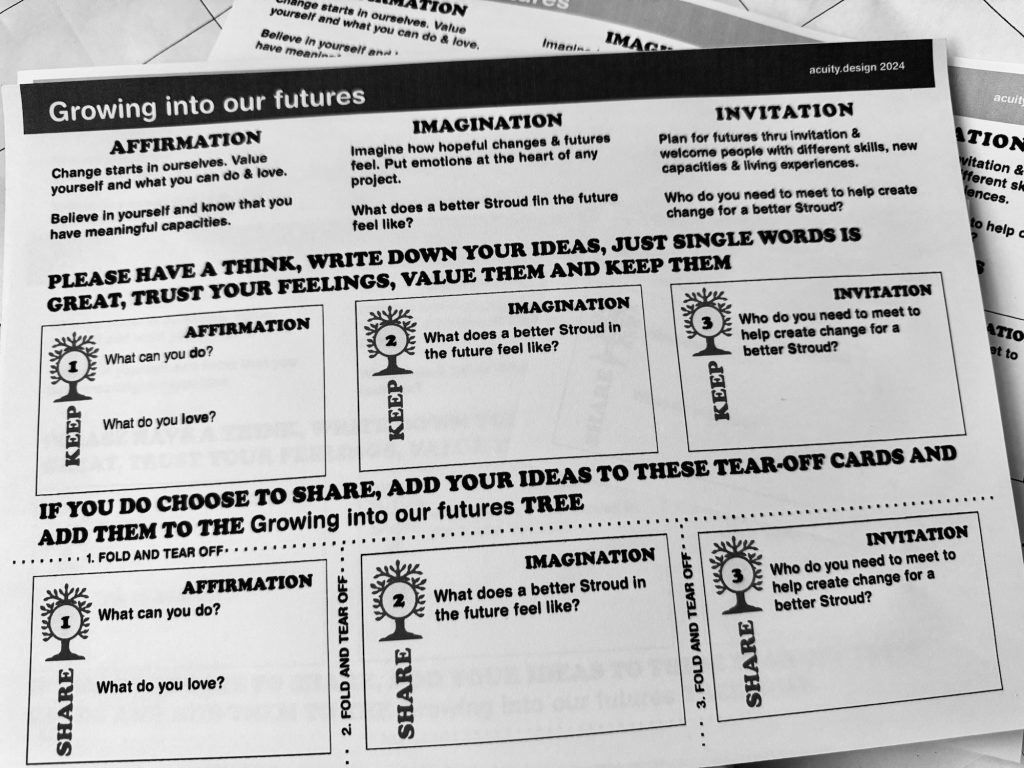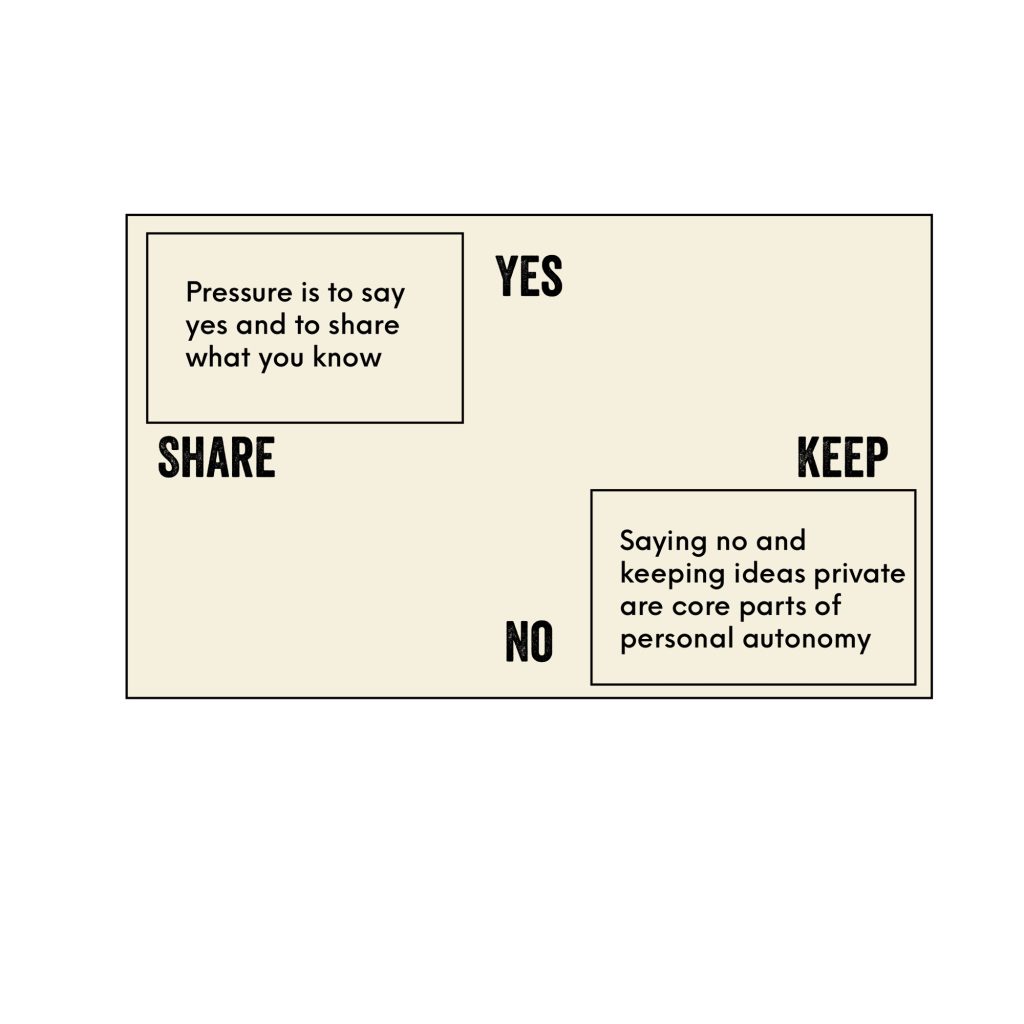
I am probably doing an outdoors workshop for Transition Stroud in September. The general theme is change in the town and there is an underlying theme of the climate crisis. It is a hope-based event.
I asked to do a new version of the Affirmation, Imagination, Invitation workshop that I have previously run at UX conferences in UK and EU.
What is different in this version and in the material (as shown in the prototype above) is a question I have been wondering about for a while.
How to support autonomy in participatory design?
Don’t turn up
I have shifted my facilitation practice to make autonomy and personal choice in workshops much more explicit. The codes of conduct I use now are clear about participants choosing to be involved or not, to stay or not.
One of my most successful online workshops was when no one turned up. Participants had prioritised urgent work and family support.
This is a foundation. A simple choice of Yes or No. Taking the power to be present or not. However, it is a crude measure. It has exclusion (or the ‘choice’ to be excluded) at its heart.
Asking not taking
The prototype material above builds on the question space of this very crude diagram.

The diagram has the yes/no as its central axis but the choices of share and keep are added. This is the autonomy of present but maintaining personal control.
Too often in workshops, especially in consultation events and codesign meetings, there is an unfair request to share what is known or experienced. It is done with the best of intents but it is still power used inappropriately.
Codesign recognises the colonial nature of most workshops. The demand to hand over what is known or what has been experienced for the greater good of the community or institution. Yet, even codesign has a bias to share. I’m reminded of the mantra ‘Sharing is caring’ in the novel/movie The Circle. It’s an abuse of the human desire to gift to others.
Thus Keeping becomes, like the simple No, a matter of personal autonomy.
What if a person chooses to be present (and not exclude themself) but does not wish to share? What if they find the knowledge or experience too painful, too personal, too valuable to themself? Why must they hand it over?
What the Stroud workshop material is about is enabling a person to explore and discover their own sense of affirmation, imagination and invitation but make explicit that what they discover is theirs and they can hold it to themself. This is similar to Active Listening practice: being heard by another person is valuable but, especially for people who are generally excluded, there is value in hearing your own voice and your own opinions. We all live in a loud Present where value is in immediate social sharing. Letting people keep their own ideas and experiences to themselves and letting them choose if or when they will share them is part of autonomy.
The Stroud workshop material is therefore deliberately explicit in making discovery, keeping and sharing into separate steps. There is friction in choosing to share. You need to re-write the cards and then tear them off. This is manifesting the choice and biasing towards keeping not sharing. Perhaps we will get less feedback on the day because of this but perhaps we may also start a more healthy relationship with people in the future.
Starting with autonomy is empowering people to take control of their lives and then helping them realise how they are valuable in creating change in the future.
One comment: